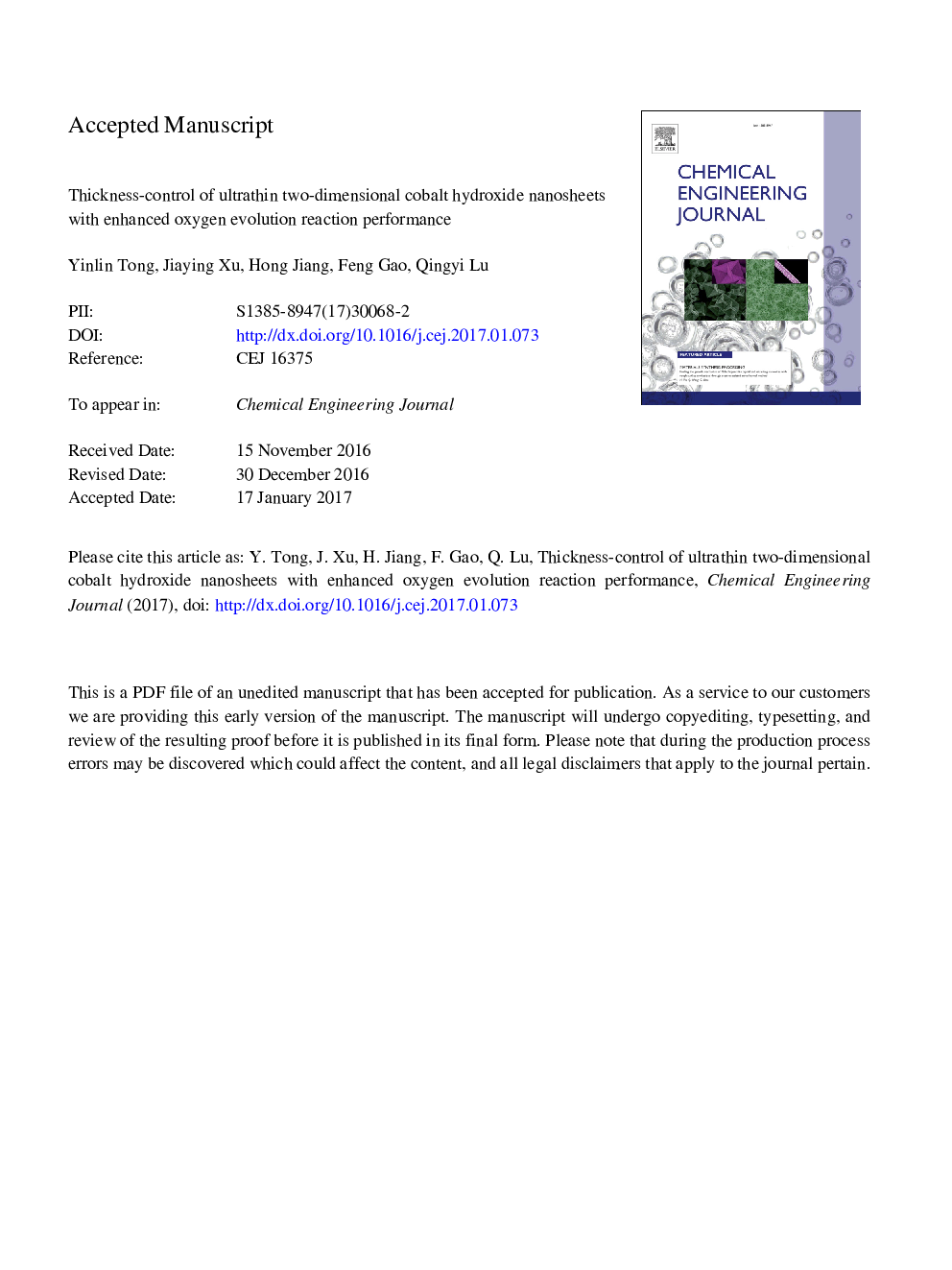| Article ID | Journal | Published Year | Pages | File Type |
|---|---|---|---|---|
| 4763397 | Chemical Engineering Journal | 2017 | 33 Pages |
Abstract
Electrochemical water splitting is one of the most promising approaches to meet the requirement to develop highly efficient and accessible systems for renewable energy conversion and storage. Herein, we report the synthesis of two-dimensional Co(OH)2 nanosheets with different thicknesses and explore the thickness effect of the nanosheets on oxygen evolution reaction (OER). It is demonstrated that the OER performances can be greatly enhanced with the decrease of Co(OH)2 nanosheets' thickness, which would relate to the increasing active sites for reaction due to the ultrathin nature of the nanosheets. The ultrathin Co(OH)2 nanosheets with a thickness of about 4.0Â nm exhibit excellent OER performances with a low onset potential, a low overpotential of 327Â mV and a small Tafel slope of 78Â mV per decade in alkaline media, which are even better than those of commercial IrO2. Our findings may point out the direction of developing ultrathin Co-based nanosheets as a promising substitution for high-cost commercial IrO2 for electrochemical water splitting.
Related Topics
Physical Sciences and Engineering
Chemical Engineering
Chemical Engineering (General)
Authors
Yinlin Tong, Jiaying Xu, Hong Jiang, Feng Gao, Qingyi Lu,
